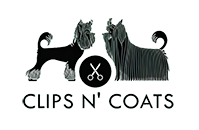
Grooming Tips for Senior Dogs
As your dog ages, their grooming needs change. Senior dogs often require special care to ensure they remain comfortable and healthy. At Clips 'N' Coats Dog Grooming, we understand the unique challenges that come with grooming older dogs. Here are some essential tips to help you keep your senior dog's coat, skin, and overall health in top condition.
Why Grooming is Important for Senior Dogs
Regular grooming is crucial for all dogs, but it becomes even more important as they age. Senior dogs can experience a variety of issues such as dry skin, thinning coats, and decreased mobility, which can make grooming more challenging. Proper grooming helps:
- Maintain Skin Health: Regular baths and brushing can prevent dryness, irritation, and infections.
- Improve Circulation: Gentle brushing stimulates blood flow, which can be beneficial for older dogs.
- Detect Health Issues Early: Grooming sessions allow you to spot potential problems like lumps, bumps, or parasites.
- Enhance Comfort: Keeping nails trimmed and coats tangle-free ensures your dog stays comfortable.
Essential Grooming Tips for Senior Dogs
- Be Gentle and Patient: Older dogs may be more sensitive and less tolerant of grooming. Use a gentle touch and take breaks if needed to avoid causing stress or discomfort. Patience is key—make the grooming process as calm and pleasant as possible.
- Use the Right Tools:Invest in high-quality grooming tools designed for sensitive skin and delicate coats. Soft-bristle brushes, gentle combs, and clippers with safety guards can make a big difference in your dog's comfort.
- Regular Brushing:Frequent brushing helps remove loose fur, dirt, and debris while also preventing matting. For dogs with arthritis or joint pain, consider using a grooming table to avoid unnecessary strain on their bodies.
- Bathing with Care:When bathing your senior dog, use a mild, moisturizing shampoo that is gentle on their skin. Ensure the water is warm but not too hot, and rinse thoroughly to remove all soap residue. After bathing, dry your dog gently with a soft towel and avoid using a high-heat dryer.
- Nail Trimming:Regular nail trimming is essential to prevent overgrown nails, which can cause pain and affect your dog's mobility. If your dog is not comfortable with nail clippers, consider using a nail grinder designed for pets.
- Ear Cleaning:Older dogs can be prone to ear infections, so it's important to keep their ears clean and dry. Use a veterinarian-recommended ear cleaner and gently wipe the outer ear with a cotton ball. Avoid inserting anything into the ear canal.
- Dental Care:Dental health is often overlooked in senior dogs, but it's crucial for their overall well-being. Brush your dog's teeth regularly with a dog-specific toothpaste to prevent plaque buildup and dental disease. Consider professional dental cleanings if necessary.
- Monitor for Skin Changes:Keep an eye out for any changes in your dog's skin, such as new lumps, bumps, or sores. These could be signs of underlying health issues that require veterinary attention.
- Keep Grooming Sessions Short:Older dogs may not have the stamina for long grooming sessions. Break the grooming process into shorter, more manageable sessions to keep your dog comfortable and relaxed.
